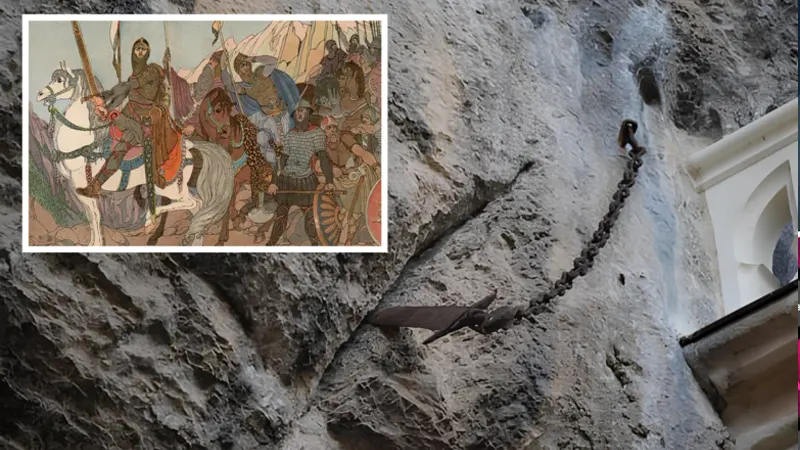A mythical ancient sword, believed to be the sharpest in the world and indestructible, disappeared from a French town after being embedded in a rock for more than 1,300 years. Legends say that the Durandal sword, which is known as the French Excalibur referring to King Arthur’s sword, was given to Holy Roman emperor, King Charlemagne by angels in the eight century according to legends. The Excalibur was prophesized to only be wielded by the "true king of Britain", however the legend of Durandal sword is a bit different.
Although the cause of the weapon's unexplained disappearance is unknown, the villagers surmise that it was taken by a thief who probably removed it from the rock wall it was jammed into, which is about 100 feet above ground.
What is the Durandal sword?
The 11th century poem describing the 'magic capabilities' of the sword is the oldest surviving work of French literature. The Bodleian Library in Oxford is currently home to the only surving copy of "The Song of Roland".
One of the biggest draws in the Rocamadour town in France was the sword and the tale behind it. The unbreakable sword could cut through stone with a single blow, if the town's tales are to be believed.
According to legend, the magical sword was gifted by King Charlemagne to Roland, an elite knight in his court. Legends say that that Roland tried to break the sword before he died in battle to keep his enemies from using it, but the indestructible sword could not be broken. In a final attempt to keep the sword from his foes, he threw it in the air and sword travelled hundreds of kilometres before landing on a cliff in Rocamadour, France.
The disappearance of the sword has greatly upset the French locals who believe that the sword is entwined with their destinies. The locals are also worried about losing the main attraction of the town. An investigation has been launched by the French police to track down the ancient sword. The police however, remain confused as to who would be able to climb a 100 feet of rock face to pull out the sword.
